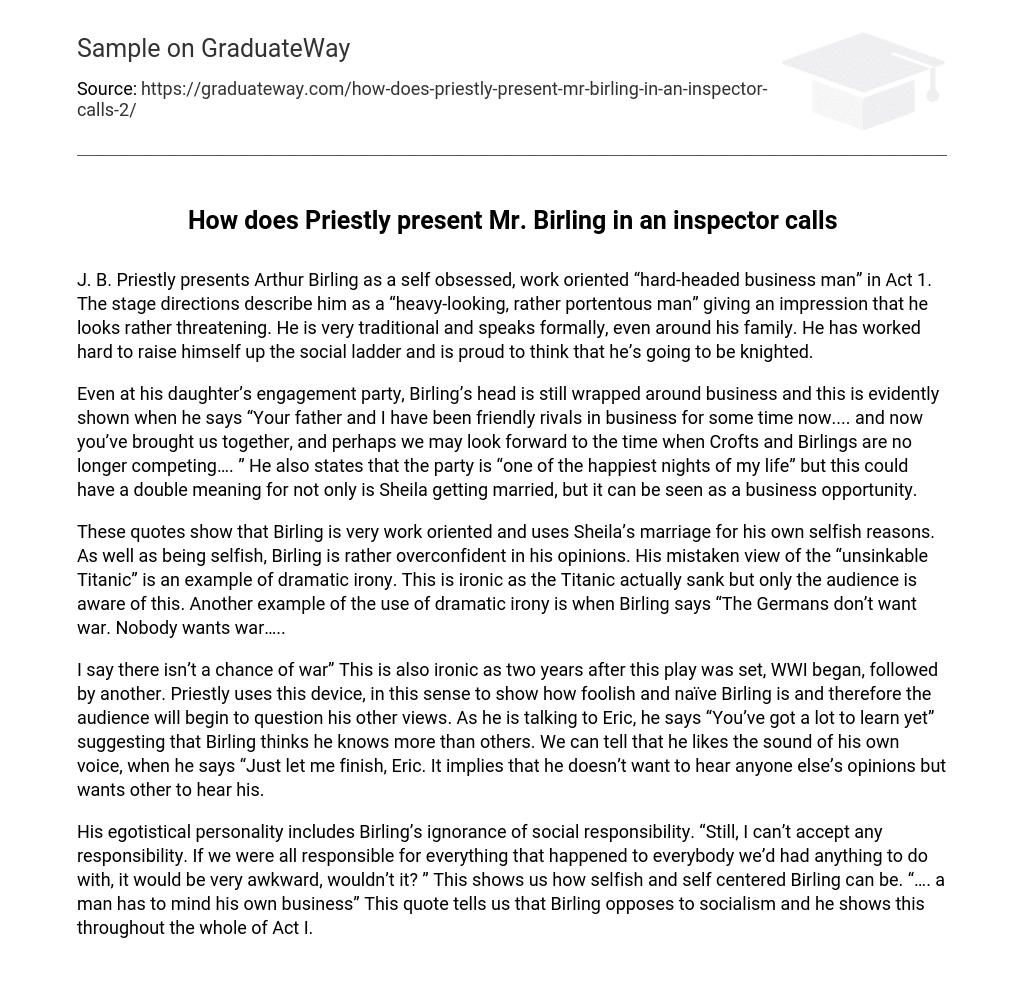According to J. B. Priestly, Arthur Birling in Act 1 is portrayed as a self-centered and career-driven individual. The stage directions depict him as a weighty and somewhat ominous figure, which gives off a sense of intimidation. Despite being in the presence of his family, he maintains a formal and traditional manner of speech. Birling has devoted considerable effort to elevate his social status and takes pride in his anticipation of receiving knighthood.
Despite being at his daughter’s engagement party, Birling’s thoughts are still focused on business. This is evident when he mentions how he and the girl’s father have been rivals in business for a while. He seems optimistic about the future, hoping that the two families may no longer compete. Birling also expresses his happiness about the party, but this may have a dual meaning. It could be because Sheila is getting married, but it can also be seen as a potential business opportunity.
These quotes illustrate Birling’s work-centric nature and his manipulation of Sheila’s marriage for his own gain. Birch’s tendencies towards selfishness are further demonstrated by his unwavering confidence in his own opinions. An instance of dramatic irony occurs when Birling mistakenly believes in the invincibility of the “unsinkable Titanic.” This irony lies in the fact that, unbeknownst to Birling, the Titanic actually does sink. Another example of dramatic irony is witnessed when Birling claims that “The Germans don’t want war. Nobody wants war…”
The playwright Priestly employs irony by having a character confidently declare, “I say there isn’t a chance of war.” However, this statement becomes ironic as the play is set two years before the start of WWI. This irony showcases Birling’s foolish and naïve nature, causing the audience to question his other beliefs. Birling further asserts his superiority when he tells Eric, “You’ve got a lot to learn yet,” insinuating that he believes he knows more than others. Additionally, Birling displays an inclination towards self-importance when he says, “Just let me finish, Eric,” indicating his desire to monopolize the conversation and dismiss others’ opinions while asserting his own.
Birling’s ego-driven nature is evident in his disregard for social responsibility. He states, “Still, I can’t accept any responsibility. If we were all responsible for everything that happened to everybody we’d had anything to do with, it would be very awkward, wouldn’t it?” This highlights Birling’s selfish and self-centered behavior. Furthermore, Birling opposes socialism, as demonstrated by his statement, “….a man has to mind his own business.” These attitudes persist throughout Act I.





